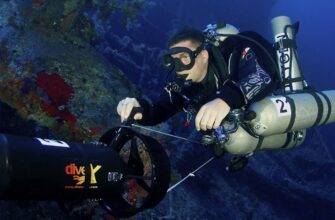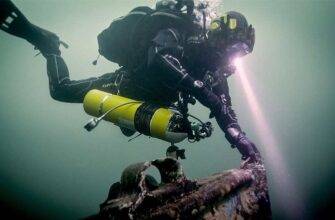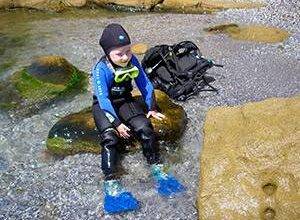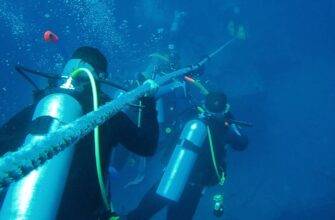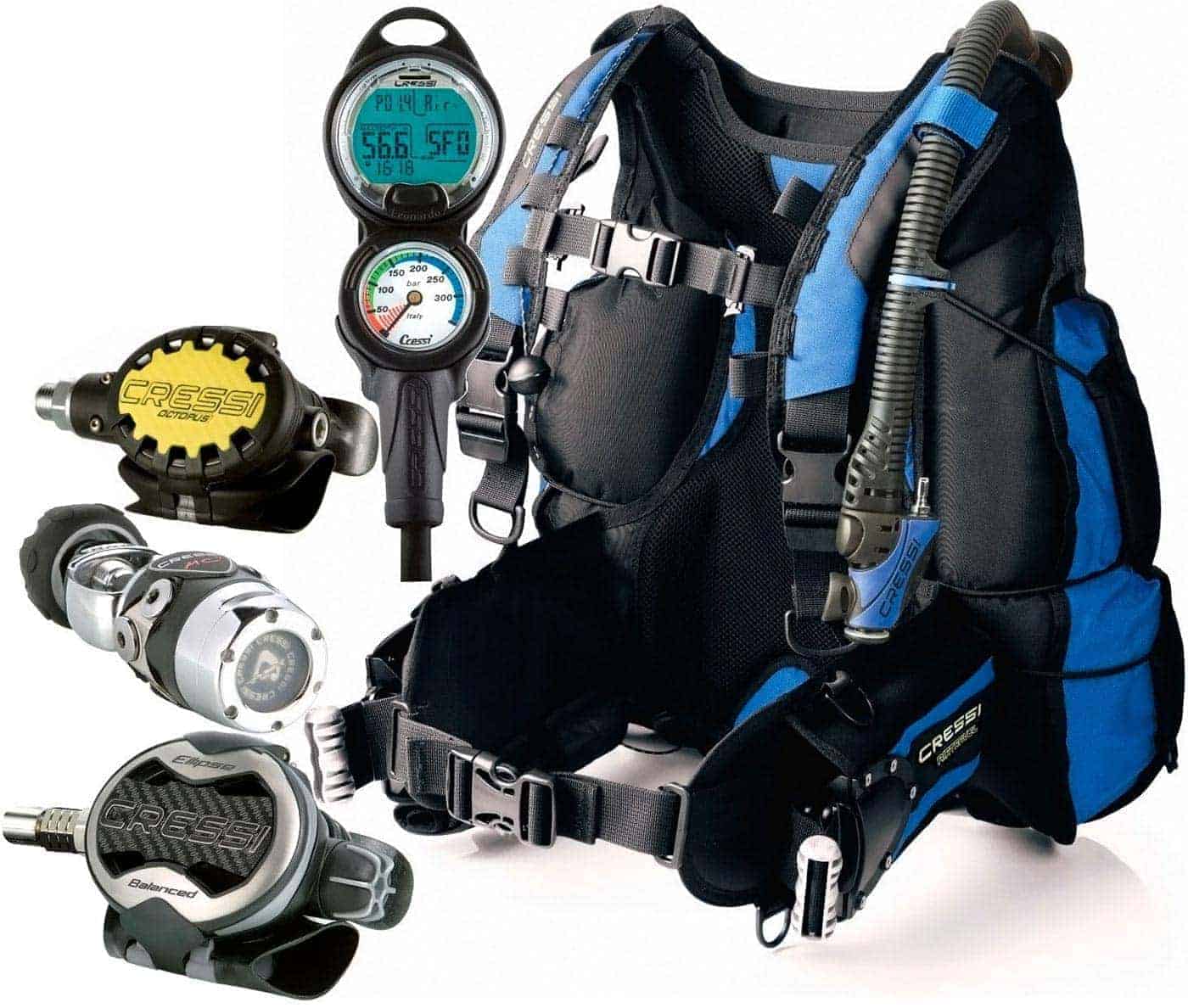
There are several reasons why it is important to properly care for diving equipment. First, equipment that is regularly maintained is safer to use. Second, it will last you longer, preserving all of its useful qualities.
The following article provides information on how to properly maintain and store your diving equipment.

Regulator maintenance
The regulator should be placed in clean water (without adding anything to it) after diving and kept there for approximately one hour.
It is also necessary to get rid of the particles that have accumulated inside, and to do this you must press all the buttons and turn the levers while rinsing. To wash out the particles that have been released, it is important to rinse the first and second stages under a head of water. Make sure that no water gets into the first stage during the soaking process. If you leave the regulator connected to the cylinder, water ingress can be avoided. You can also tightly cover the first stage with a dust cap and it is important not to press the regulator’s cleaning button on the second stage. On the first stage, wipe the dust cap dry with a towel before you install it.
You should wipe the regulator with a clean towel and store it in a cool, dry place so that it is not exposed to light, dust or high temperatures. Store it separately from the cylinder and place it in a position that does not put pressure on the hoses. The first stage should be higher than the second stage and the mouthpiece should look down.
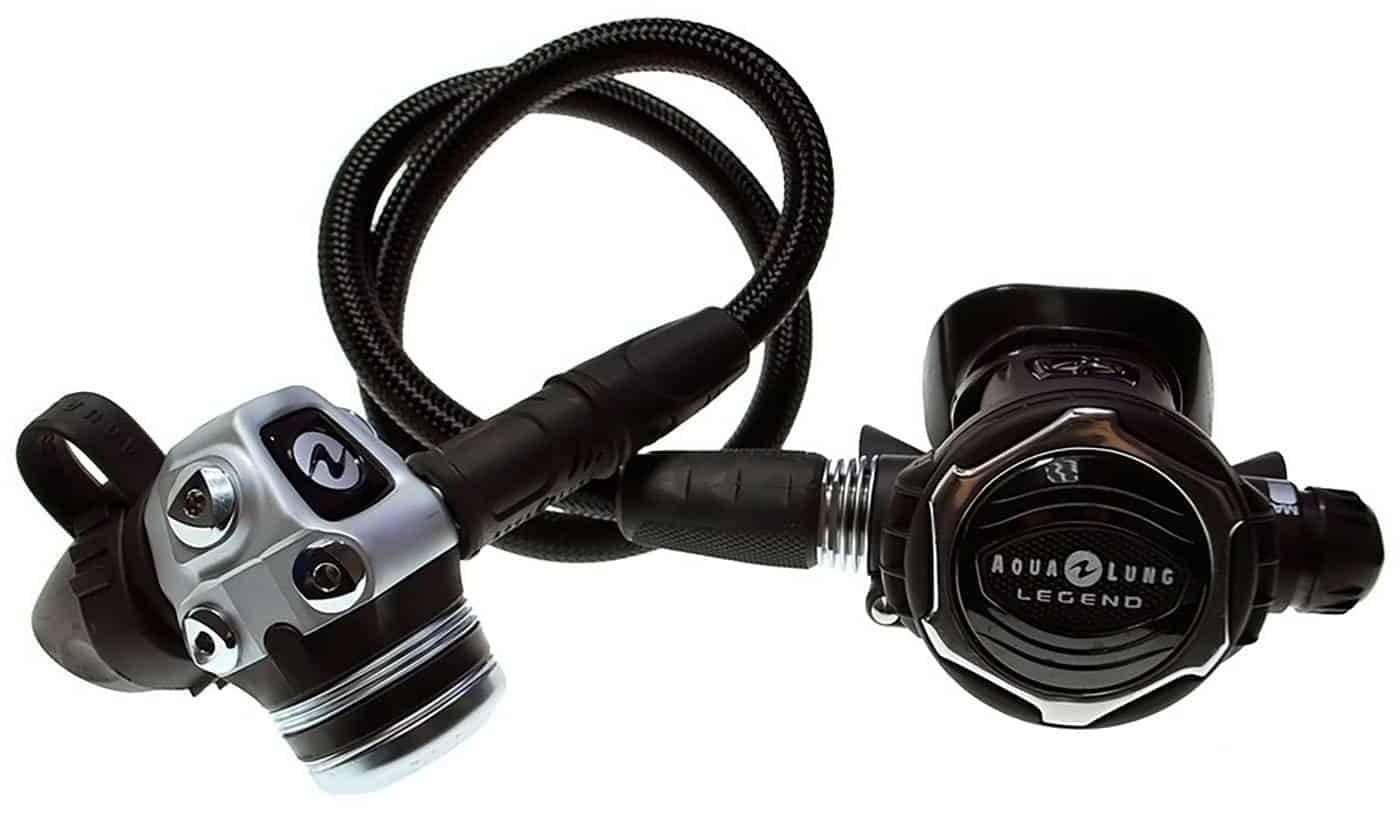
Correct Cylinder Storage
Cylinders It is important to rinse and wipe dry after use. It is necessary to dry the cylinder completely by removing the cylinder shoe and drying it so that no water drops remain on the outside.
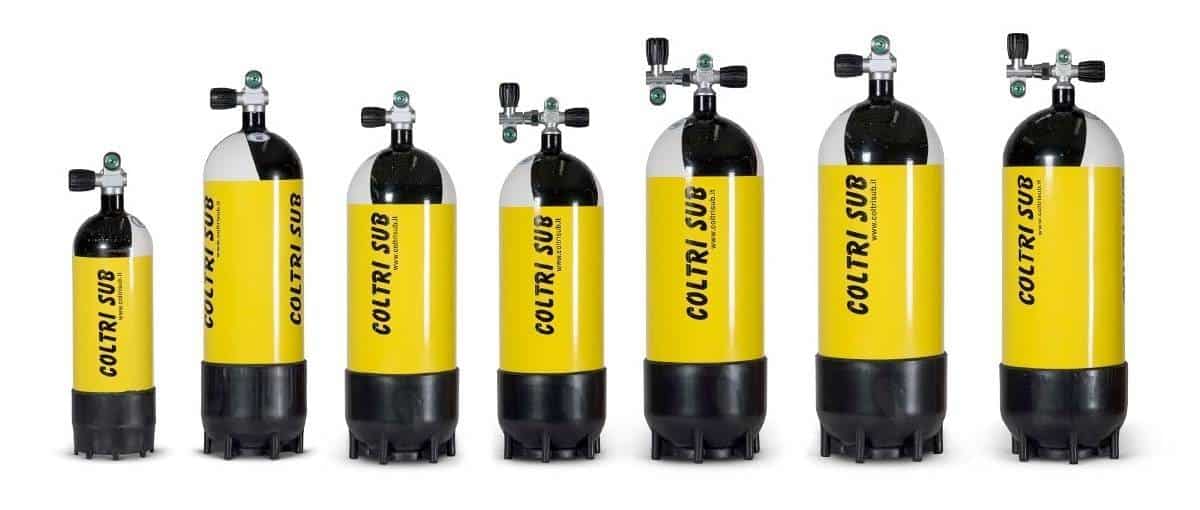
Cylinders must be checked regularly to prevent corrosion and unacceptable heavy wear and tear. Cylinders must be visually inspected once a year. To inspect the cylinders, all labels must be removed from the cylinders. Once every 5 years it is necessary to check and make sure that the walls of the cylinder are intact, for this hydrostatic check.
The pressure in cylinders should be at least 25psi (2 atmospheres) to prevent moisture from entering. Therefore check this before storage. Store the cylinders vertically in a cool, dry place.
Storage of the buoyancy compensator
It is also important to flush the buoyancy compensator with clean water after use. You can flush the inside of the air chamber if water enters the inside of the compensator. Fill the air chamber through the inflator by one-third with water while holding down the drain button. You should also flush the inside of the compensator with water by shaking it a couple of times. Then, turn the compensator “upside down” and press the drain button to allow the water to drain from the inflator. You should store the compensator partially inflated upside down.
The weights and fins should also be rinsed in clean water after use. A filler can be inserted in the foot pockets of the fins to prevent deformation of their shape.
The mask after use should be rinsed with water and dried. It is desirable to store it in a case and do not let the silicone with black rubber come into contact, because of this it can lose color.
How to store your wetsuit, gloves and boots
After use, the material should be soaked and rinsed in water. Any foreign particles are removed during soaking. A conditioner designed for wetsuitsIt prevents wear and tear on the material and reduces unpleasant smells. You should apply some beeswax to the zippers and close and open them a few times to prevent the zippers from deteriorating.
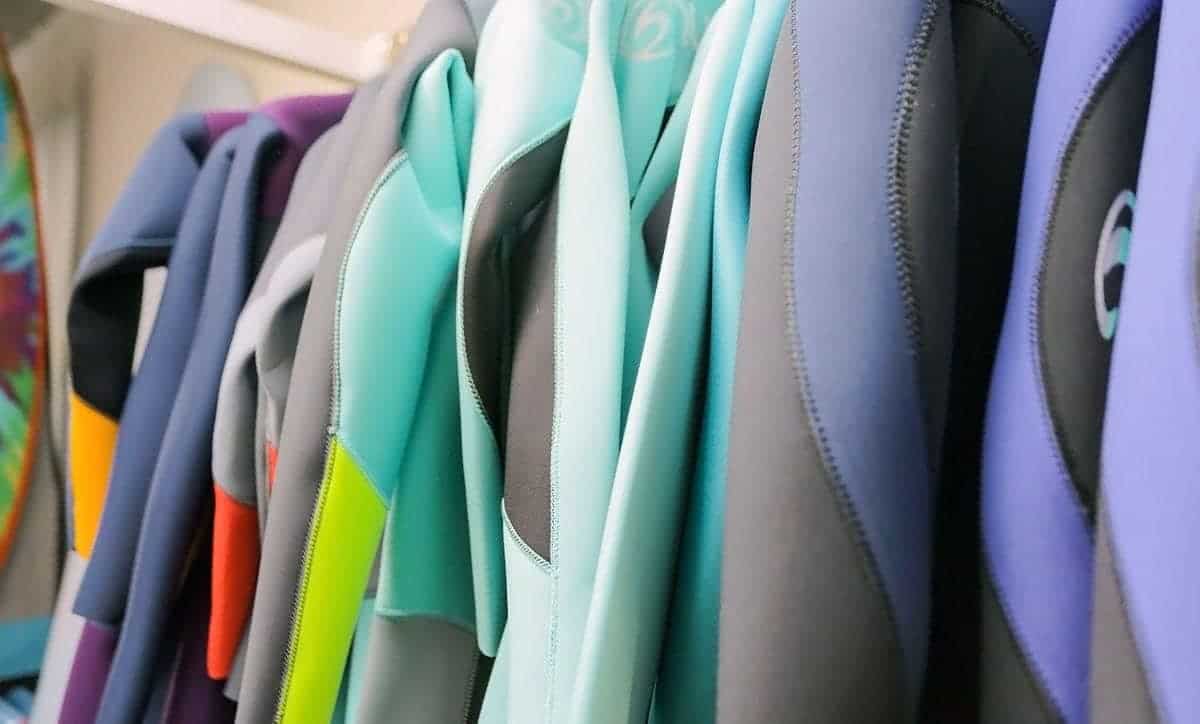
Wetsuits, gloves and boots should be dried on special racks to prevent crumpling of the neoprene.
Underwater underwater cameras and diving flashlights are very sensitive to sand, water and salt. They should be soaked in fresh water after use. To wash out the salt and sand you need to work out all the moving parts while soaking. Then it is important to give the flashlight or camera time to dry completely and then you can open it. After drying, you can loosen all connections, remove batteries and film. Before the next use, it is important to thoroughly clean and lubricate all gaskets.
The equipment should be stored in a protective case to prevent dirt and dust from entering
To extend the life of such expensive equipment, it is recommended that you have it serviced by professionals and that you periodically pressure test your cameras and flashlights. And also use the equipment by following the manufacturers’ recommendations.
Instruments and computersused underwater are just as sensitive to sand, water, and salt. They should also be soaked in fresh water, if possible immediately after use. To wash off the salt and sand you need to work out all the moving parts.
Read More:
